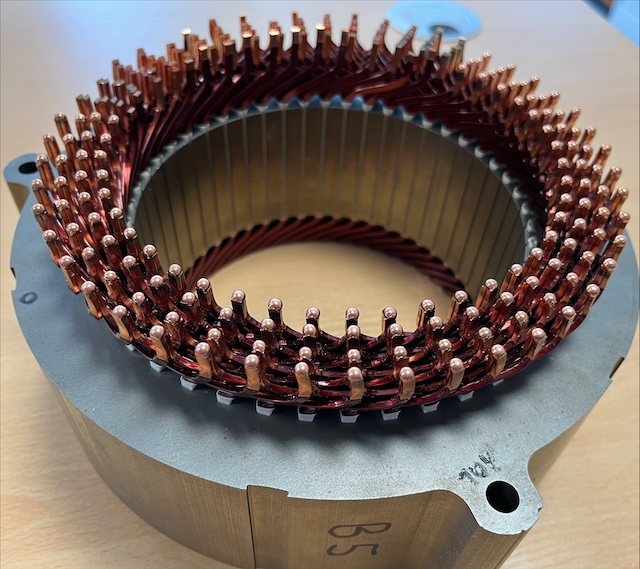Ford and Cambridge Vacuum Engineering (CVE), a provider of electron beam and laser welding systems, have jointly secured a £430,000 (US$542,000) research grant from UK Research and Innovation’s (UKRI) Driving the Electric Revolution Challenge, administered by Innovate UK. This grant is part of a £5.8m (US$7.3m) fund aimed at exploring the automation and scaling up of electron beam welding for joining copper and aluminum components used in electric motors for the automotive industry.
CVE has previously received grants from Innovate UK, including funding under UKRI’s Faraday Battery Challenge in February 2023. The EB-Bat project, a collaboration with Delta Cosworth and TWI, focuses on designing, building and testing an electron beam welding machine for battery busbar components.
For the new project, Innovate UK, the UK’s national innovation agency, is investing heavily in electrification technologies like power electronics, machines and drives (PEMD), aligning with the country’s goal of achieving a net zero carbon economy and fostering cleaner technology supply chains.
The collaborative project, named EB-eDrive, aims to optimize the manufacturing process of hairpin stators, which are components in electric vehicle (EV) engines. The companies say that accelerating this process could bolster EV production in the UK.
Electron beam welding, known for its faster speed compared with conventional laser welding techniques, has already proved beneficial in other clean-energy applications, such as expediting the production of wind turbines and nuclear reactors while reducing energy consumption and carbon emissions.
Work on the EB-eDrive project has commenced, with CVE and Ford outlining project scopes, drafting initial designs and welding small samples.
For more component testing news, please click here.


